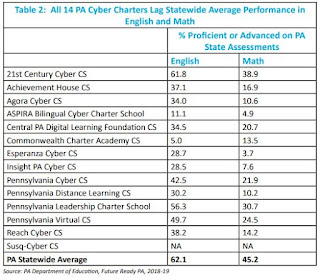Well, now the legislature in Florida (State motto: "There Is No Bottom") has passed HB 1557, the Don't Say Gay bill. There have been many attempts to defend the bill as being not so bad as its detractors say, but these attempts are at worst disingenuous and at best reveal a lack of understanding of how classrooms work. Let me explain why you can safely ignore the people saying critics of the bill have overblown the threat level of the bill.
First, there is the Outing Students language. Under 1001.42, section 8, subsection c1 and c2, we get the language saying in broad terms that any sort of change in the student's mental, emotional or physical health, parents must be notified. This is very broad, but in the context of the bill it seems most clearly aimed at students who come out as any sort of LGBTQ human.
Language underlines that school procedures must "reinforce the fundamental right of parents to make decisions regarding the upbringing and control of their children" and that school personnel should encourage the student to discuss the "issue" with their parents--maybe even facilitate a discussion. This is an echo of a proposed amendment that was going to mandate that the school out students to their families. The bill now retains language that the school can choose to hold back the information if a "reasonable person" would determine that such an outing would put the child at risk of "abuse, abandonment or neglect."
There's still more than enough left of this part to convince an LGBTQ student that they are not safe coming out to a trusted or asking for help at school; under this section, parents are entitled to see any and all records about their child, meaning that any counseling session that leaves a paper trail would be a risk for students not yet ready to come out to their family.
Second is the meat of the restriction:
Classroom instruction by school personnel or third parties on sexual orientation or gender identity may not occur in kindergarten through grade 3 or in a manner that is not age-appropriate or developmentally appropriate for students in accordance with state standards.
This is the part that Governor DeSantis points at to say, "Look, the word gay isn't actually there" and also "we're just restricting lesson materials for K-3." But the "or age-appropriate or developmentally appropriate" would seem to open up a larger, vaguer restriction for all students. And the "it doesn't use the word gay" defense is just dumb, because of course it is--just in fancier language. (Surely the guy who coined the "Stop WOKE Act" understands the power of boiling a legislative idea down to a short, pithy phrase.)
The guy who introduced the bill, Rep. Joe Harding, is among the many saying, "Look, you can still talk about this stuff--you just can't have lessons or curriculum about it." This is an argument made by someone who is either shoveling fertilizer or who just doesn't understand how a classroom works. If my lesson is about families, and we're all going to draw pictures of our family at home, and I know that Pat has two Mommies--have I designed a lesson that is "about" LGBTQ content? If I design any lesson that is likely to prompt a bunch of personal sharing (which, for primary grade students, is all lessons, all the time), have I violated this law? If I have a picture of my same-gender, legally-married spouse on my desk, am I violating the law (and heaven help me if my same-gender romantic partner decides it would be romantic to propose to me at school, as hetero couples are known to do)
Supporters of the bill can say, "Well, no, not really" or "I'd have to see your lesson plans," and I can believe that some of these panicked folks really think they're only stemming a tide of teachers whose lesson plans say, "Tuesday: Convince first grade class that they might all be gay." There are clearly some folks hanging on to the old, odious notion that all LGBTQ folks are pedophiles, and that LGBTQ people are only That Way because some other LGBTQ person talked them into it, and if nobody ever brought up the idea of gayness, nobody would ever be gay, in which case they may imagine that this bill is really holding back something real, and not addressing imaginary panics.
But here's the thing-- it doesn't matter what any of these people inside the legislature believes about what the bill does or doesn't restrict because--
Third, the bill farms out enforcement to the public. Any parent who thinks that a portion of this law has been violated and is unsatisfied with the district response can drag the district before a special magistrate, and then sue the district. Neither Joe Harding nor Ron DeSantis nor any other politicians in Tallahassee get to decide what the law actually prohibits--parents get to do that.
But, you say, parents who sue over something stupid will just lose and nonsense suits under the law will just burn themselves out. But even in nonsense suits, the school district will have to spend time and money to defend themselves; even a stupid lawsuit will be damaging to the district.
As with the proliferating gag laws around the country, the effect here is to intimidate and chill, to get frightened administrators, boards, and teachers to do the dirty work and shut down every possible lesson plan, curricular item and classroom activity that might set off some litigious parents. Which means that regardless of how mild guys like Harding and DeSantis claim the bill is, the end effect will be that it will be as severe as the most severe parent in the local district decides it is.
So do not be fooled by the defenders of this bill who claim that everyone is overreacting and Florida is just trying to block Choose Your Gender Day from Kindergarten. This is a bad bill, a bill designed to chill and intimidate and drive LGBTQ students and teachers back into the closet.
One other thing-- you need to know that as bad as this bill is, there are worse ones out there, with more popping up, and if you are outraged at what Florida is up to, you may need to save some of that outrage for another state closer to home, because this wave has not even crested yet.



 ) I think it’s because they’ve seen a drastic spike in searches and they are worried that people are educating themselves rather than blindly believing what MSM narrative. Anyone have a better theory?
) I think it’s because they’ve seen a drastic spike in searches and they are worried that people are educating themselves rather than blindly believing what MSM narrative. Anyone have a better theory?
